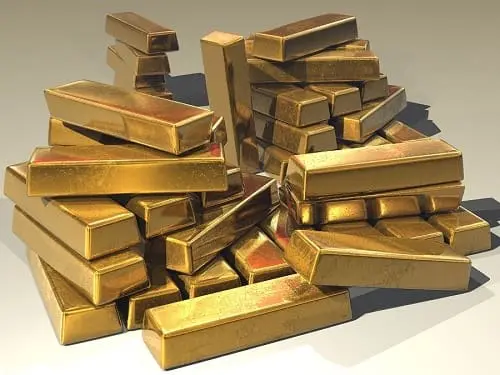The Royal Mint has signed an agreement with Canadian start-up Excir to recover gold and other precious metals from old smartphone and laptop circuit boards.
Precious Waste Mountain
A recent assessment by the waste electrical and electronic equipment (WEEE) forum has concluded that this year’s worldwide mountain of waste electronic and electrical equipment will total an estimated 57.4 million tonnes – greater than the weight of the Great Wall of China, Earth’s heaviest artificial object. Also, an estimated 151 million or more phones a year, approximately 416,000 a day, are simply incinerated or landfilled, and that 40 per cent of heavy metals in US landfills come from discarded electronics.
More Than Ore
According to Dr Ruediger Kuehr, director of the UN’s Sustainable Cycles (SCYCLE) programme, “A tonne of discarded mobile phones is richer in gold than a tonne of gold ore.”
Dr Kuehr also claims that one million mobile phones contain “24 kg of gold, 16,000 kg of copper, 350 kg of silver, and 14 kg of palladium”.
Plans To Extract Gold At Plant In Wales
Through its agreement with Excir, The Royal Mint intends to build a plant in Wales that could reclaim hundreds of kilograms of gold and other precious metals from electronic waste such as mobile phones and laptops.
Excir has developed chemical solutions that can extract the metals from the circuit boards. Sean Millard, the Mint’s chief growth officer says that Excir can “selectively pull out precious metals with a high degree of purity,” and that although the mint currently uses the process at small scale, a new plant “would look to process hundreds of tonnes of e-waste per annum, generating hundreds of kilograms of precious metals”.
Value Vs Cost?
A kilogram of gold is worth around $55,000 at current prices so, although extracting the gold from old circuit boards sounds potentially profitable (and better for the planet). It is not yet clear, however, how much the new extraction plant and its operation would cost.
Reasons For The Electronic Waste Mountain
Some of the reasons why there has been a growth in the consumption of electronics include:
– Smaller periods between new product releases.
– Limited options for repairing broken items and lack of the ‘right to repair.’
– Fast device development e.g., mobile phones, leading to a market dependency on rapid replacement of older devices.
What Does This Mean For Your Business?
As identified by the Royal Mint and Excir, recovering, recycling, and returning precious metals to the production cycle not only provides a good business opportunity but also new supplies don’t need to be mined, thereby helping the environment.
Tackling the growing e-waste crisis, however, will take a number of different measures over time, globally. Getting to a situation where there is the creation of a circular economy for electronic goods where waste is minimised, the most is made of resources, the environment and health are protected, and businesses and developing economies can still meet their demand, will take a wide variety of actions. These include legislation and having a more digital and connected world to help accelerate progress towards sustainable development goals, thereby helping emerging economies, and ensuring that less precious minerals, metals, and resources are dumped into landfill. Also, an approach that could dematerialise the electronics industry (e.g., through ‘device-as-a-service’ business models), better product tracking and take-back schemes, and entrepreneurs, investors, academics, business leaders and lawmakers working together could help make the circular economy work. Increasing the ‘right to repair’ in electronic products is another way to help tackle the crisis and help the environment going forward.


